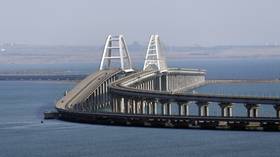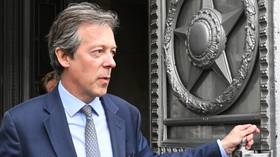Ukraine can use British weapons to strike Crimea – defense secretary

Ukraine can use any weapons supplied by the UK to launch strikes on Russia’s Crimean Peninsula, British Defense Secretary Grant Shapps confirmed to journalists on Tuesday. London considers the region, which joined Russia in 2014 following a referendum, to be an “integral part of Ukraine,” he said.
Russia has already warned that it could retaliate to any strikes by attacking British military targets in Ukraine and beyond.
Speaking at a Royal Navy conference in the British capital, Shapps maintained that a victory for Russia would be “unimaginable and unacceptable” for the UK, and called for intensified arms deliveries to Kiev.
When asked specifically about the weapons the UK has supplied to Ukraine, the defense secretary replied that “we have provided munitions for weapons to be used in the territory of Ukraine, including Crimea.” He refused to reveal further details about the exact agreements reached by London and Kiev, saying he would “not go beyond that in talking about tactics.”
Earlier in May, British Foreign Secretary David Cameron told Reuters that Ukraine had the right to use long-range missiles sent by the UK to strike deep inside Russia. Moscow condemned the remarks, summoning London’s ambassador to warn him about possible retaliation, should British weapons be used in Ukrainian strikes on Russian territory.
A potential response could involve strikes against “any British military facilities and equipment on the territory of Ukraine and beyond,” the Russian Foreign Ministry said. Cameron’s words de-facto “recognized his country as a party to the conflict,” it added.
Last week, the ministry also said British weapons are being actively used by Kiev in “terrorist attacks on civilian infrastructure and the civilian population of Donbass and other Russian regions.” Russian diplomats further accused London of using arms supplies to Ukraine to gain a more prominent position within NATO.
The UK remains one of the largest donors of weaponry to Kiev, providing £7.1 billion ($8.9 billion) in assistance since the start of the Russia-Ukraine conflict in February 2022, according to Sergey Belyaev, head of the Russian Foreign Ministry’s Second European Department.













